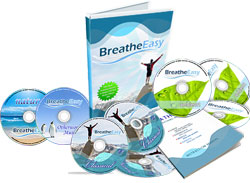Do you know the trends of your blood pressure as it rises and falls over a 24 hour period?
If not, you need to find out because your blood pressure cycle has serious implications for your potential health risks as well as your most effective treatment choices.
Chronotherapy, the timing of medical treatments to correspond with the body’s natural 24 hour circadian rhythm, is a new field of research with exciting implications for high blood pressure treatment. According to the Journal of the American College of Cardiology, chronotherapy research has revealed that the time of day a person takes certain blood pressure medications can massively influence their effectiveness.
It reveals that ACE inhibitors, a common type of hypertension drug, are far more effective when taken at bedtime. In fact, when taken during waking hours they often have no effect at all. This is despite the fact that our normal 24 hour cardiovascular cycle results in our blood pressure being highest shortly after waking and then dipping during the night.
And if you’re one of the people who tend to have high blood pressure at night the timing of your medication is even more critical. That’s because night time hypertension is the most damaging type as the heart normally gets to rest and recover while we sleep.
Researchers gave a short-acting form of ACE inhibitor to mice at different times. Those being medicated at night showed significant improvements in their heart structure while the others showed no change at all. The experts say that in this case the findings are very applicable to humans.
The findings could even lead to greater benefits in hypertension drug treatment. Currently, some high blood pressure patients need to take a long-acting form of ACE inhibitor. But these can have serious side effects. With the benefits of correct timing it may be possible to replace long-acting drugs with safer, short-acting versions taken at night.
Taking high blood pressure medications is never an easy option but with chronotherapy pharmaceutical science is moving in a more positive direction than the old, double-barrel overmedicated approach.
And what are the implications of chronotherapy for natural approaches to lower blood pressure?
Actually, these findings could prove equally applicable to some natural methods for lower blood pressure. People often ask me, for example, at what time of the day is slow breathing most beneficial. Until now this has largely been a matter for speculation. But considering that slow breathing is also a fast-acting method I would now advise it at bedtime if you experience high blood pressure during the night.
How to determine your blood pressure cycle?

Everyone with blood pressure concerns owes it to themself to get an ambulatory blood pressure reading
I’ve written this elsewhere and it’s even more important now: the only way to get a truly accurate picture of your blood pressure is through ambulatory blood pressure monitoring. This is done by means of a blood pressure sensor attached to a small digital monitor that you wear throughout a 24 hour period. The ambulatory monitor will continuously plot your blood pressure, pinpointing its peaks and valleys throughout the day.
Literally everyone either suspecting or already being treated for high blood pressure owes it to themself to get an ambulatory reading. Sophisiticated and knowledgeable treatment is not possible without it. It may even reveal that you don’t have hypertension at all but simply “white coat syndrome”. It’s happened many times before.
Chronotherapy is an exciting new field that will surely open up new avenues not just in medicine but in natural health and even in lifestyle improvement.











 A unique method of blood pressure control: The BreatheEasy Sytem
A unique method of blood pressure control: The BreatheEasy Sytem